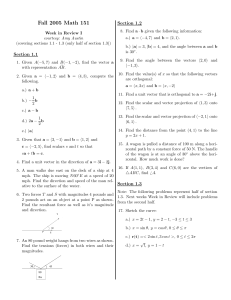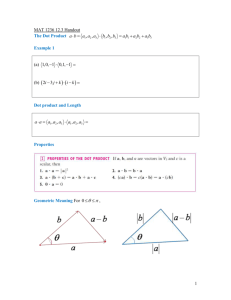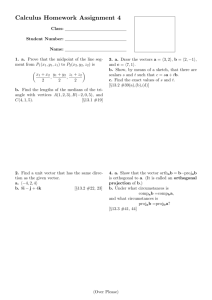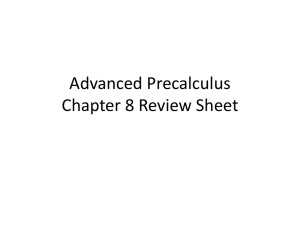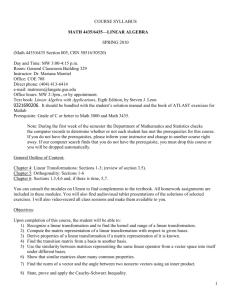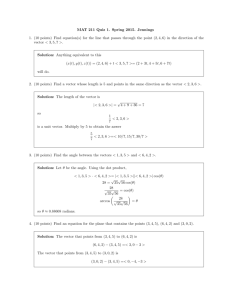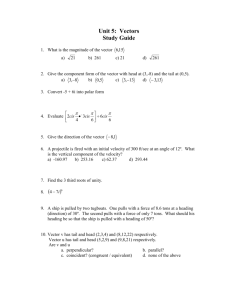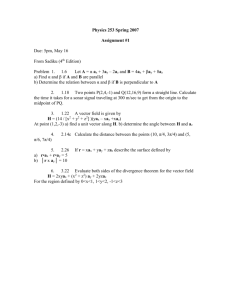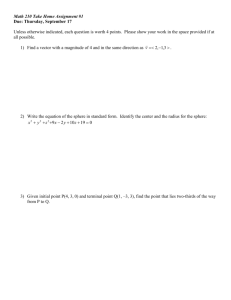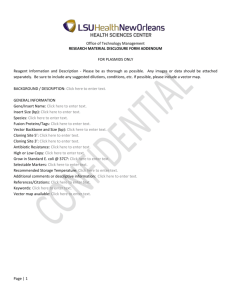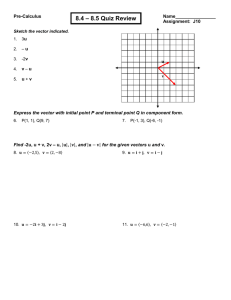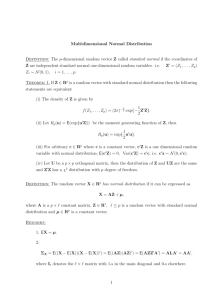14: Find the angle θ between the vectors (a) in radians and (b) in
advertisement
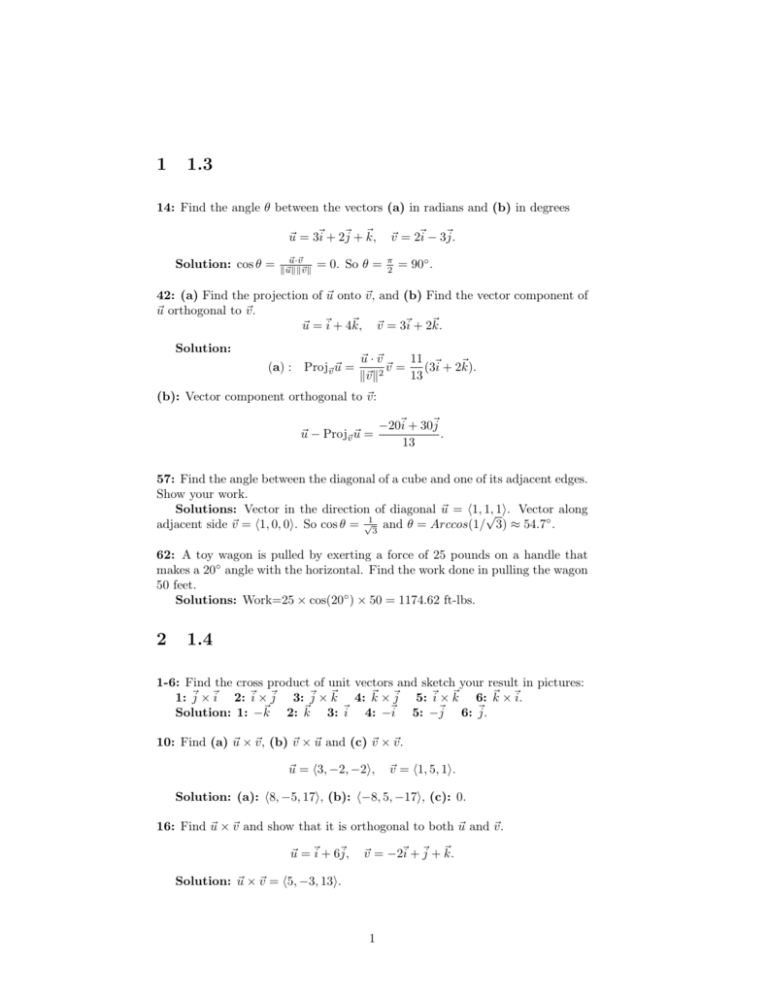
1 1.3 14: Find the angle θ between the vectors (a) in radians and (b) in degrees ~u = 3~i + 2~j + ~k, Solution: cos θ = ~ u·~ v k~ ukk~ vk ~v = 2~i − 3~j. = 0. So θ = π 2 = 90◦ . 42: (a) Find the projection of ~u onto ~v , and (b) Find the vector component of ~u orthogonal to ~v . ~u = ~i + 4~k, ~v = 3~i + 2~k. Solution: (a) : Proj~v ~u = ~u · ~v 11 ~ ~v = (3i + 2~k). k~v k2 13 (b): Vector component orthogonal to ~v : ~u − Proj~v ~u = −20~i + 30~j . 13 57: Find the angle between the diagonal of a cube and one of its adjacent edges. Show your work. Solutions: Vector in the direction of diagonal ~u = h1, 1, √1i. Vector along adjacent side ~v = h1, 0, 0i. So cos θ = √13 and θ = Arccos(1/ 3) ≈ 54.7◦ . 62: A toy wagon is pulled by exerting a force of 25 pounds on a handle that makes a 20◦ angle with the horizontal. Find the work done in pulling the wagon 50 feet. Solutions: Work=25 × cos(20◦ ) × 50 = 1174.62 ft-lbs. 2 1.4 1-6: Find the cross product of unit vectors and sketch your result in pictures: 1: ~j × ~i 2: ~i × ~j 3: ~j × ~k 4: ~k × ~j 5: ~i × ~k 6: ~k × ~i. Solution: 1: −~k 2: ~k 3: ~i 4: −~i 5: −~j 6: ~j. 10: Find (a) ~u × ~v , (b) ~v × ~u and (c) ~v × ~v . ~u = h3, −2, −2i, ~v = h1, 5, 1i. Solution: (a): h8, −5, 17i, (b): h−8, 5, −17i, (c): 0. 16: Find ~u × ~v and show that it is orthogonal to both ~u and ~v . ~u = ~i + 6~j, ~v = −2~i + ~j + ~k. Solution: ~u × ~v = h5, −3, 13i. 1 28: Find the area of the triangle with given vertices. A(2, −3, 4), B(0, 1, 2), C(−1, 2, 0). (Hint: 21 k~u × ~v k is the area of the triangle having ~u and ~v as adjacent sides. −−→ −−→ Solution: AB = h−2, 4, −2i, AC = h−3, 5, −4i. ~i ~j ~k −−→ −−→ AB × AC = −2 4 −2 = h−6, −2, 2i. −3 5 −4 Area(4ABC ) = 1 −−→ −−→ √ AB × AC = 11. 2 38: Use the triple scalar product to find the volume of the parallelpiped having adjacent edges ~u, ~v and w. ~ ~u = h1, 3, 1i, Solution: ~v = h0, 6, 6i, 1 3 ~u × ~v · w ~ = 0 6 −4 0 The volume of the parallelepiped=72. 2 w ~ = h−4, 0, −4i. 1 6 −4 = −72.
